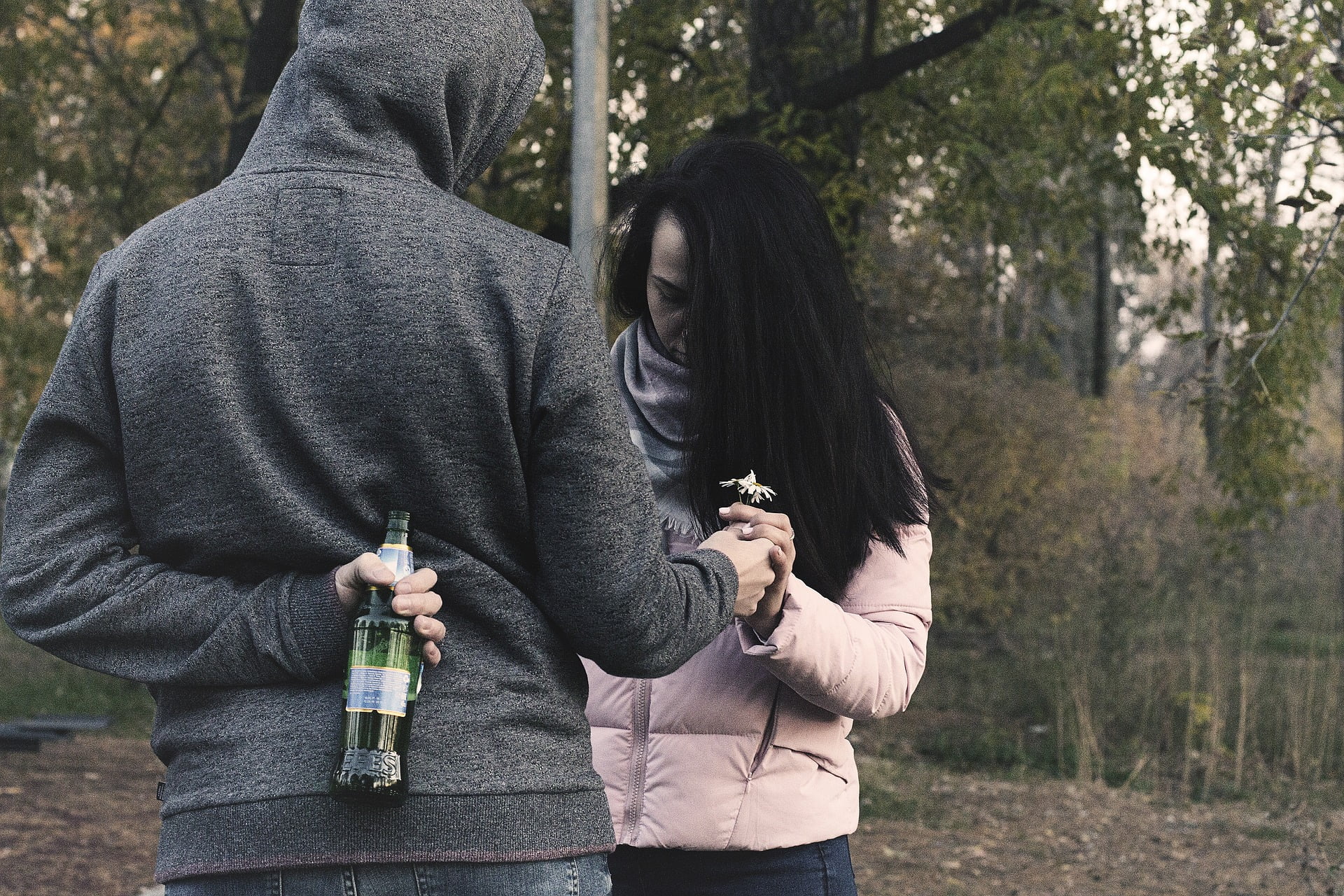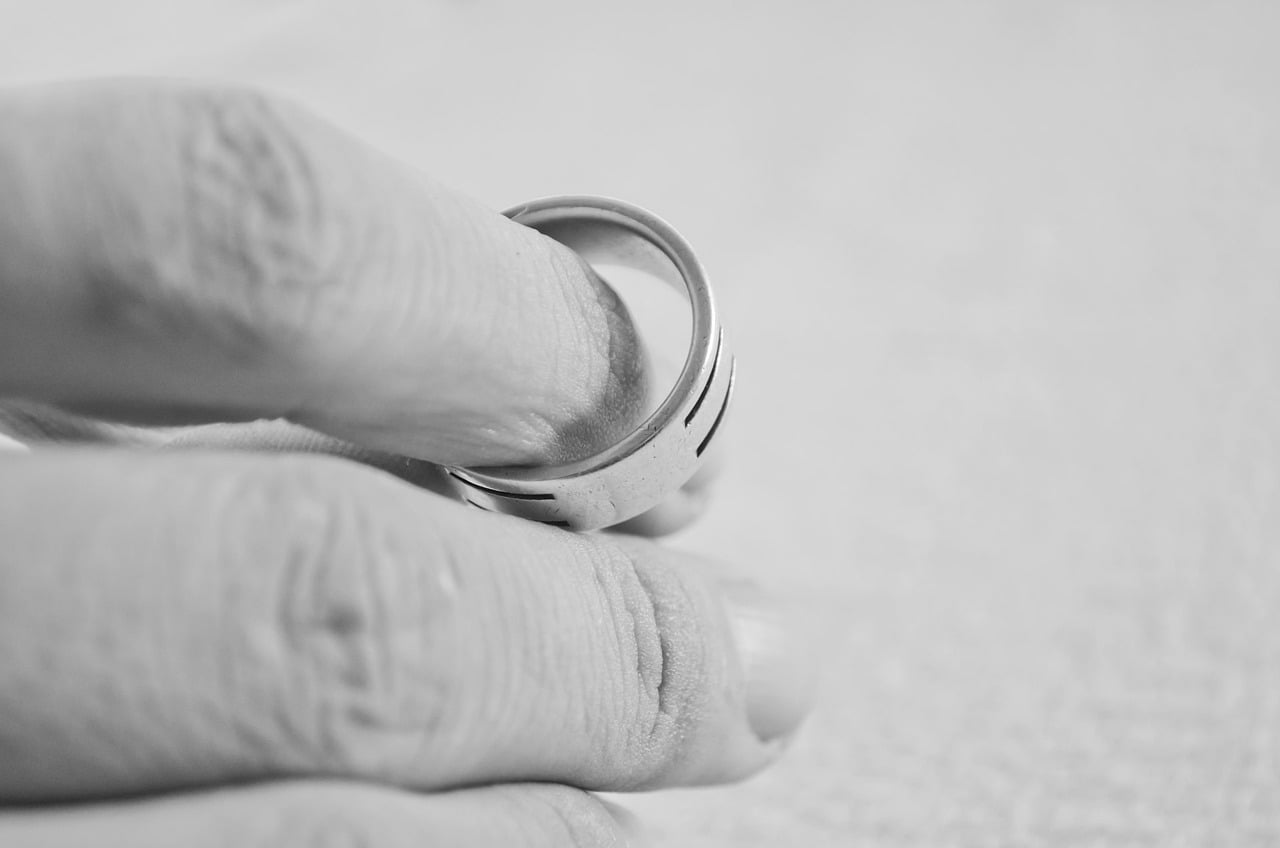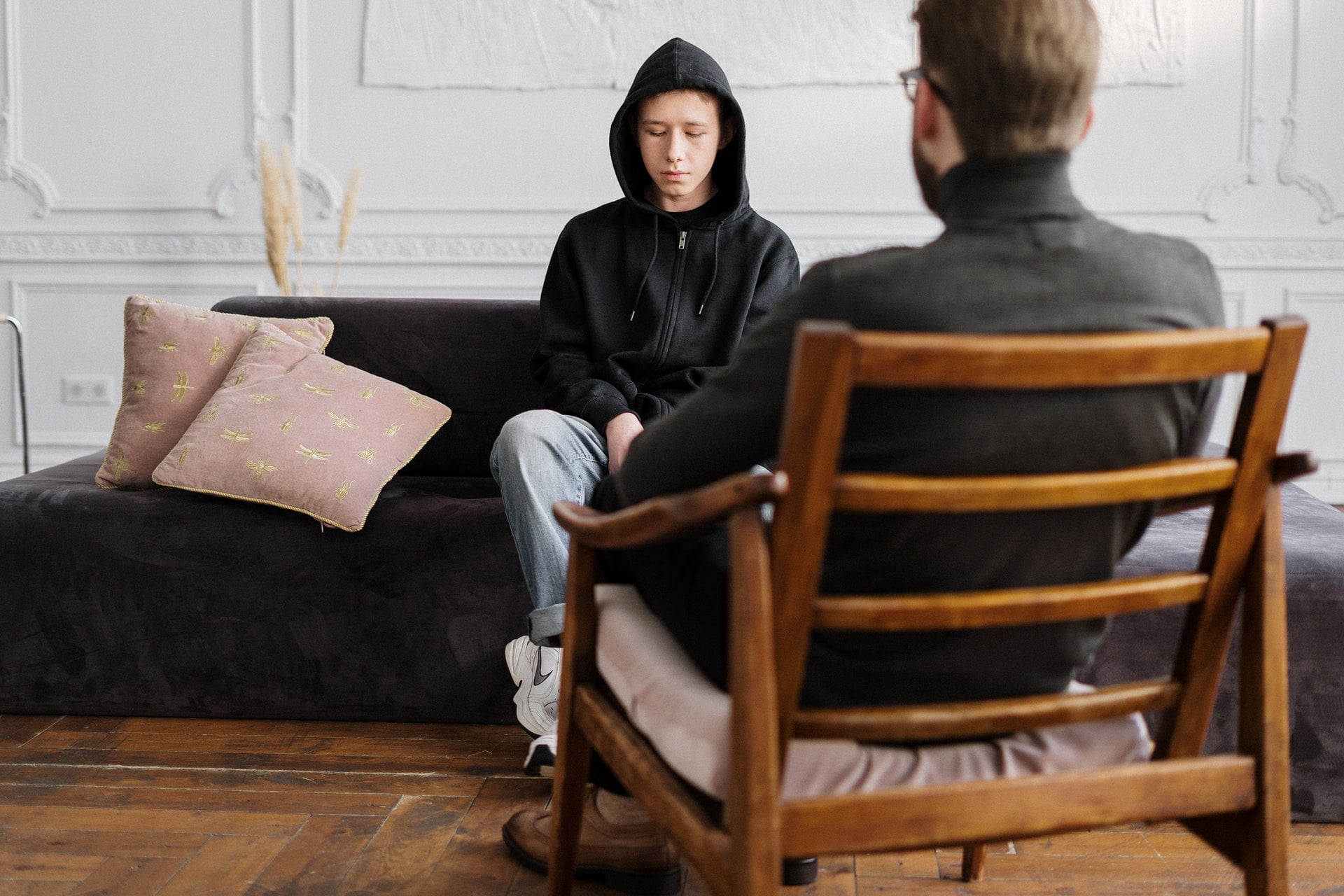- Home
- Addiction Guides
- Addiction and Divorce
Addiction and Divorce
There is a strong link between addiction to drugs and alcohol and divorce. Unfortunately, thousands of people who suffer from addiction ruin their relationships, which can eventually result in divorce.
Addiction And Divorce Statistics
If your spouse is addicted to drugs and alcohol, then you will know all too well just how much pressure and strain it can put on a marriage.
Whether your partner is addicted to drugs, alcohol, gambling, or anything else, you both end up suffering. Whilst divorce, in general, is on the rise, more and more people who are addicted to drugs and alcohol are getting divorced.
Unfortunately, lots of people who are married and abuse drugs and alcohol find themselves divorced.
Drug abuse is also more common among those who are divorced, separated or even recently widowed [1].
This is most notably because drug abuse does tend to cause a whole host of mental health issues (a dual diagnosis) which causes a lot of tension and suffering in relationships and marriages [2,3].
In addition to this, drug and alcohol addiction and abuse cause a lot of strain on your finances and social life, which in turn creates issues and tension within the marriage [4].
How Addiction Can Destroy A Marriage

Unfortunately, there are millions of people across the world who are suffering from drug and alcohol addiction.
When someone is addicted to drugs or alcohol, the people around them also tend to suffer from the effects of their loved one’s addiction. Often, it’s the people closest to them who tend to suffer the most, which often includes partners and spouses.
Addiction hurts many aspects of an individual’s life. However, it is often the individual’s relationships that suffer the most.
This includes their relationships with their friends, their family, their children and most importantly, their partners who are probably the closest to them.
There are several different ways that an addiction issue within a relationship or marriage can hurt. Just some of these ways are listed below.
1. A Loss Of Trust

When someone is addicted to drugs and alcohol, people tend to lose trust in them. This might be because the individual starts to backtrack on their plans and promises, and they might start to lie and steal into their hands on drugs and alcohol.
Over time, dishonesty and breaking promises take a toll on a marriage and a relationship in the same way as cheating does.
As a result of this, spouses tend to become shut off from their partner, and might even start to be dishonest and untrustworthy back as a result of their partner’s actions and addiction.
It is particularly challenging when an individual starts to become addicted to things like sex and pornography, which are very heated and emotional subject matters when it comes to marriage and addiction.
When it comes down to it, all marriages are built on trust. When that trust is broken, it is often hard to get it back, but not unachievable nor impossible.
2. Financial Strain

Unfortunately, drugs and alcohol are expensive addictions to have. When an individual or spouse is addicted to drugs and alcohol, then they tend to spend a lot of money on their addiction, which subsequently results in debt.
As a result of their addiction, they might also lose their job which means that they will fall behind in their rent or mortgage payments, which could ultimately result in them losing their house and livelihoods.
Unfortunately, this will always put a huge financial strain on any relationship. In addition to this, people who are addicted to drugs and alcohol might turn to commit crimes to get hold of their addictive substances, including theft.
As a result, they might lose their job or might have to pay off any legal fees or fines.
These financial strains put a huge amount of pressure and strain on your marriage which will result in arguments and potentially, divorce.
3. Physical and Emotional Abuse

Unfortunately, dealing with an addiction puts a huge emotional and physical strain on both the sufferer and those around them.
It is normal for spouses to feel overwhelmed and pressured into caring for their loved one who is suffering from a substance use disorder. When someone suffers from a substance use disorder, they might also become more aggressive, angry and potentially abusive than they used to be.
For example, the likelihood of suffering from domestic abuse increases if you are to live with someone who is addicted to drugs and alcohol.
Thousands of calls to the ambulance service are due to domestic violence where drugs and alcohol are involved.
If you are suffering from domestic abuse, whether it is physical or emotional, then you will need to speak with a professional as soon as possible about how to help your loved one.
You should never have to put up with domestic abuse, and you should always do what you have to do to put yourself and your family in a safe environment.
Warning Signs that Your Spouse is Addicted to Drugs and Alcohol

If you think that your loved one or spouse is addicted to drugs or alcohol, then there might be several warning signs that you recognise and can look out for.
Some of these warning signs include the following:
- Only being able to effectively communicate with you when they are intoxicated with drugs and alcohol
- Only being able to act affectionately when they are intoxicated by drugs and alcohol
- Trying to convince you to abuse drugs and alcohol with them
- Arguing and stressing mainly revolve around addiction and abuse
- Using drugs and alcohol as a way of coping with stress
- One of you having to take on the role of caretaker for the other one due to their addiction
- Lying to and deceiving your loved one to get your hands on drugs and alcohol
- Struggling to pay the bills and do the weekly food shop due to your spouse’s addiction to drugs and alcohol
If you suspect that your spouse is addicted to either drugs or alcohol and want to confront your loved one, then you should consider holding an intervention.
An intervention is a planned meeting where you express your concern to them in a controlled and monitored way.
You should ask an intervention specialist to educate you on the ins and outs of how to hold an intervention. They might even offer to attend the intervention with you to ensure that your spouse is confronted in the right way.
If you think your loved one is addicted to drugs and alcohol, then speak to a member of the Rehab Recovery team for advice and support on how to help them to seek help.
Types Of Addiction That Can Affect A Marriage

When people think of addiction, it’s easy to think of alcohol or drug addiction. However, many different types of addiction can affect an individual’s life, their relationships and their marriages to their spouses.
This is because any addiction is both a mental and behavioural issue that causes a reliance and co-dependency on something else. Below is a list of different, frequently experienced addictions which often affect marriages:
- Drug addiction (to cannabis, cocaine, meth, opioids
- Alcohol addiction
- Shopping addiction
- Pornography addiction
- Sex addiction
- Nicotine addiction
- Food addiction
- Exercise addiction
- Gambling addiction
Any of the above addictions can impact the quality of a marriage, and have the ability to result in divorce.
If you are addicted to any one of the above addictions and feel like your addiction is affecting your relationship with your loved one, then speak to a member of the Rehab Recovery team for advice and support.
Likewise, if you think that your spouse is addicted to any of the above addictions then our friendly and helpful team can also help you get to grips with their addiction and work out a plan of action.
Addiction and Divorce in the Courtroom

As discussed above, lots of addiction issues and cases result in divorce.
However, if you or your loved one is addicted to drugs or alcohol and are considering divorce, then you might be wondering how this divorce will play out in the courtroom or divorce settlement.
When someone considers divorce within a marriage, they should engage their solicitor and lawyers. From then onwards, your lawyers and solicitors will work to negotiate an agreed settlement for the custody of any children involved, any money and any shared assets.
Most times, this agreement can be settled during the negotiation and does not result in a courtroom battle.
However, if someone within the relationship is addicted to drugs and alcohol, then it might make this settlement a little bit more complex.
If addiction has been the main contributing factor in divorce, then this will also be taken into account. This might affect the distribution of assets, and whether anyone is given sole custody of the children.
If you suffer from an addiction and are going through a divorce, then you might not be awarded the children as sole custody, due to any potential danger or harm they might be exposed to due to your addiction.
Whilst this can be a very difficult and emotive part of the divorce, each judge will have the children’s best interests at heart, as we’re sure you do too.
The judge might also grant you visitation rights, meaning that you can visit the children on a certain date, at a certain time.
You should also be prepared to expect that the judge might also ensure that someone else has to be present with you during your visiting hours, depending on the severity of your addiction.
How Co-dependency Affects Addiction and Divorce

Co-dependency within addiction also has a judgemental impact on marriage.
Unfortunately, lots of people who suffer from co-dependency issues also find themselves with a low sense of self-worth and confidence, meaning that they are easily manipulated.
Likewise, lots of spouses of those addicted to drugs and alcohol also find themselves co-dependent on their spouse which has its issues.
Lots of spouses of those addicted are often desperate to believe their partners, believe that they can get better and see them fit and healthy again.
Likewise, if you are addicted to drugs and alcohol then you might find yourself abusing this co-dependency to manipulate your loved one into facilitating your addiction over time,
If you are co-dependent yourself and addicted to drugs and alcohol, then you will most likely suffer from a low sense of self-worth and a lack of confidence which over time will only contribute to your addiction and mental health issues.
There are many different characteristics of a co-dependent individual. Some of these characteristics are listed below:
- They tend to go above and beyond for their loved one
- They lack trust in their loved one
- They struggle to set boundaries
- They tend to become very jealous and demanding
- They struggle to identify their emotions
- They constantly feel the need for approval
- They massively fear and avoid feelings of rejection
- They often pity their loved one and confuse this with feelings of love
- They tend to lie frequently to keep the relationship going
- They are very poor communicators
- They tend to control their loved ones a lot
- They suffer from a lack of confidence
- They suffer from a lack of self-worth
People tend to be co-dependent on their partner when they have previously or are currently experiencing a dysfunctional relationship, whether this is between their parents, loved ones or friends.
Co-dependency can start to show at any stage during a relationship or an addiction, even when the individual suffering from an addiction is seeking treatment for their addiction or is in recovery from their addiction.
If you are addicted to drugs or alcohol, or your spouse is, then you are more likely to be in a co-dependent relationship.
This means that you are in a toxic and unhealthy relationship, which can very easily turn into tit for tat and can even turn into an abusive relationship, both physically and mentally.
If you think you are currently in an abusive or co-dependent relationship, then speak to a member of the Rehab Recovery team for advice and support on how to deal with your co-dependent relationship and avoid ending your relationship in a divorce.
How Will Divorcing My Partner Affect Their Addiction?

It is only natural to feel particularly emotional and anxious when going through a divorce. Divorce can stir up a whole host of negative emotions, such as failure, disappointment and rejection.
However, when you or a spouse is addicted to drugs and alcohol, then this does create an added complexity to the divorce.
For example, explaining to someone who is addicted to drugs and alcohol that you wish to have a divorce can come with some difficult challenges.
If your loved one is still suffering from an addiction when you tell them that you are wishing to get a divorce, then you might think that threatening to divorce them might just be enough to make them change their ways and get sober.
However, this simply is not the case.
A lot of people who are threatened with divorce might say that they will stop abusing drugs and alcohol to save their relationship but never do in the long run.
If you are considering divorce and your spouse is still addicted to drugs and alcohol, then you should be aware that your loved one might take the news sadly and might act out as a result of this.
If you are worried about how your spouse might react when you tell them, it might be a good idea to make sure that someone can be with them after you tell them, to help and support them in case they act out.
Likewise, if your loved one is at the start of their addiction journey when you tell them that you want a divorce, then you should make sure that they are helped and supported. Otherwise, this could very easily push them further into their addiction and mental health issues.
If your spouse is in recovery from their addiction when you tell them that you want a divorce, then you should be prepared that they might want to relapse after you tell them.
If you think that your spouse might relapse after you tell them, then it is important that they are supported and that you can provide them with help and relapse prevention techniques to help to avoid this.
If you are currently married to an individual who is addicted to drugs and alcohol and are considering addiction, then you should consider where your loved one is at in their addiction journey, as this will change and affect how you should approach the conversation.
If you are considering divorcing someone who is addicted to drugs and alcohol but want more help and support on how to approach the conversation and deal with the aftermath and consequences, then speak to a member of the Rehab Recovery team for help and support on how to tackle the situation at hand.
Is Divorce Inevitable When Someone in a Relationship is Suffering from An Addiction Issue?

Whilst lots of people who are married and addicted to drugs and alcohol get a divorce, divorce is not the only option to consider.
If you are considering staying together, then there are several things that you will need to seriously consider, including whether you think your relationship is truly strong enough to overcome the addiction.
If you think it is, then you do stand a good chance of overcoming these issues and getting through this.
If you live with someone who is addicted to drugs and alcohol, then you will know all too well the strain and pressure this puts on a relationship.
You will most likely feel abandoned, and lied to and will also feel a level of resentment towards your partner for the pain and suffering that they are putting you through.
It is important to understand that you might also feel a level of hopelessness towards your loved one, the situation and any future you might have together. However, there is hope.
1. Rehab Options

There are a number of different treatment programmes across the UK to help individuals to overcome their addiction issues.
Some treatments, including family therapy, even allow spouses and other family members to attend the treatment with them to ensure that you are all treated.
To recover, some individuals will require inpatient rehab treatment. This is when an individual temporarily moved into a rehab centre for a number of days or even weeks or months in order to recover.
During this time, they will eat and sleep within the rehab facility and will receive all of their treatment there too. Your spouse will attend inpatient rehab treatment if their addiction is more severe, or if they suffer from a complication such as a dual diagnosis.
If your spouse’s addiction is less severe, then they might be recommended for outpatient rehab treatment.
During outpatient treatment you will be able to remain living at home and will visit the rehab centre on a daily or weekly basis, depending on how severe your addiction is.
Outpatient rehab treatment is a great option for anyone who is married or who has children, as you can maintain daily life and responsibilities whilst getting treatment for your drug and alcohol addiction.
2. Therapy Options

Luckily, there are many different types of therapy across most rehab centres in the UK. While not every rehab and therapy technique will work for you and your addiction, it is important to keep an open mind so that you can get the most out of your treatment and therapy.
Listed below are some very common therapy techniques that are frequently offered in rehab centres across the UK.
- Group therapy
- Cognitive Behavioural Therapy
- One to one therapy
- Brief interventions
- Holistic therapy
- Al Anon family group meetings
- Motivational interviewing
- Family therapy
- Twelve Step Facilitation Therapy
- Co-dependency treatment
3. Al Anon Family Group Meetings
Al Anon family group meetings are a great way of getting help alongside your loved one and their addiction. Often, the family members of the addicts suffer from a lot of different issues as a result of their spouses’ and loved ones’ addiction.
Al Anon family group meetings consist of weekly meetings where you will meet other people who are all going through the same thing as you, and will be able to sit down with your spouse and loved one in a calm environment for an open and frank discussion.
Is Divorcing Someone Due to Their Addiction the Right Thing To Do?

Unfortunately, there is no right or wrong answer to this question, and whether you should leave or stay with someone will depend on you, their addiction and your particular situation.
Finding the confidence and inner strength to leave someone you are married to is hard, and divorcing someone will always have the potential to make their life and addiction more turbulent.
This is why it is incredibly important to seek help and advice if you are considering divorcing someone who is addicted to drugs and alcohol.
Get in Touch with Rehab Recovery
If you are addicted to drugs and alcohol and need help and support on what treatment options you should opt for, then speak to a member of the Rehab Recovery team for advice and support.
Our friendly and professional team will be able to help and advise you on how to get your spouse the help they need.
Start by calling us for free on 0800 088 66 86 or by visiting us online at www.rehab-recovery.co.uk for more information on the ins and outs of drug and alcohol addiction.
References
[1] Compton WM, Thomas YF, Stinson FS, et al.. Prevalence, correlates, disability, and comorbidity of DSM-IV drug abuse and dependence in the United States: results from the national epidemiologic survey on alcohol and related conditions. Arch Gen Psychiatry. 2007;64(5):566–576. [PubMed] [Google Scholar]
[2] Scott KM, Wells JE, Angermeyer M, et al.. Gender and the relationship between marital status and first onset of mood, anxiety and substance use disorders. Psychol Med. 2010;40(9):1495–1505. [PMC free article] [PubMed] [Google Scholar]
[3] National Institute on Drug Abuse Medical Consequences of Drug Abuse. NIDA; 2012. https://www.drugabuse.gov/related-topics/medical-consequences-drug-abuse. Accessed September 1, 2017.
[4] National Drug Intelligence Center National Drug Threat Assessment. Washington, DC: United States Department of Justice; 2011.




